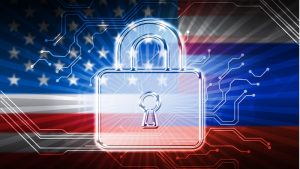The Maryland Department of Information Technology (DoIT) announced that “white hat” hackers found more than 40 exploitable vulnerabilities in the state’s first-ever bug bounty program.
State, local, and territorial (SLT) governments are in line to receive $279.9 million in grant funding in fiscal year (FY) 2024 State and Local Cybersecurity Grant Program (SLCGP) according to an agency announcement on Sept. 23.
The Federal Communications Commission has opened the application window for the Schools and Libraries Cybersecurity Pilot Program.
The FBI, Cybersecurity and Infrastructure Security Agency (CISA), and the Department of Defense Cyber Crime Center (DC3) released a joint Cybersecurity Advisory (CSA) to warn network defenders that, as of August 2024, a group of Iran-based cyber actors continues to exploit U.S. organizations.
State officials said this week that they are balancing centralized and decentralized distribution approaches as they try to put money from the Federal government’s State and Local Cybersecurity Grant Program (SLCGP) to work for them.
The College Board – the creator of Advanced Placement (AP) courses and exams – announced that it is accelerating the organization’s efforts to move to digital exams. Trevor Packer, head of the AP Program, said that this year the College Board saw “a rise in bad actors compromising AP Exam content for financial gain.” As […]
With the November 2024 election approaching, the FBI and the Cybersecurity and Infrastructure Security Agency (CISA) issued a public service announcement to remind voters that distributed denial of service (DDoS) attacks are not a concern for election integrity and security.
In response to a probe from the Government Accountability Office (GAO), the Environmental Protection Agency (EPA) says it plans to release a national cybersecurity strategy for the water sector in January 2025.
The University of Hawaii has secured a $6.5 million grant from the National Science Foundation (NSF) to enhance cyber infrastructure adoption, capacity, and training in the Pacific region.
The Department of Treasury sanctioned two members of a Russian nationalist hacktivist group on July 19 over an incident in January that led to the overflow of water storage tanks in Texas.











